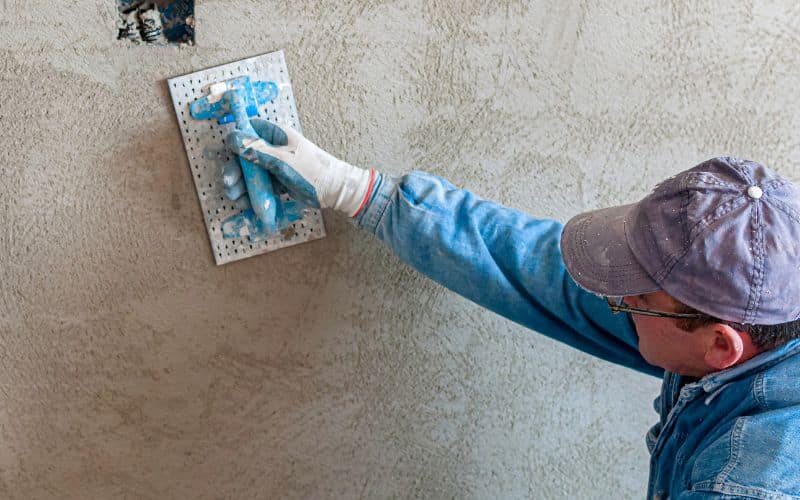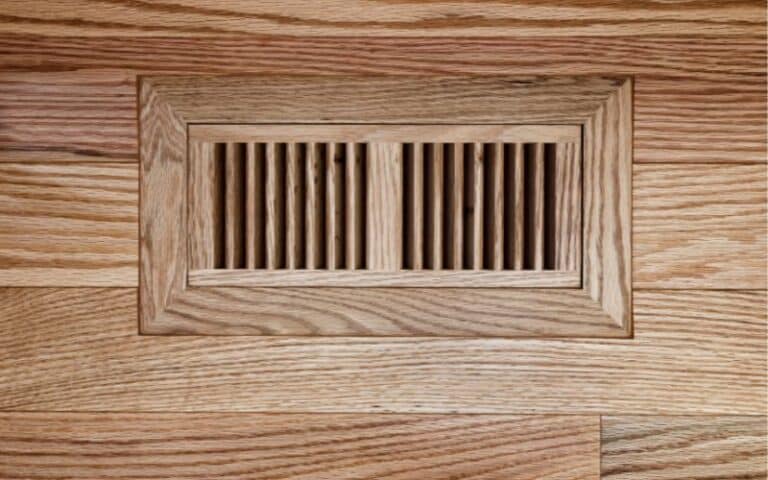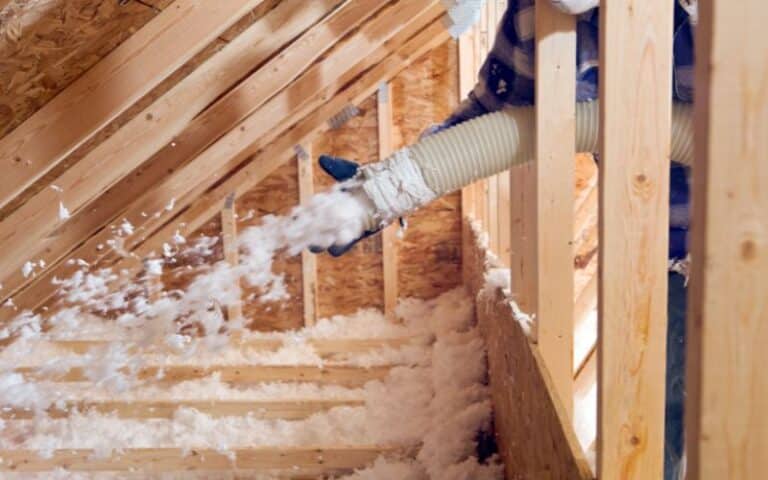Concrete adhesives and bonds make installing one surface over another a pretty smooth task.
Among the various brands of concrete bonds is the plastic weld, which is top-ranking in the list of good concrete bonds.
Plaster welding makes the work of plastering over concrete surfaces an easy task.
However, you may not always have access to a plaster weld or afford one, hence the need to find alternatives.
One of the most convenient substitutes for the plaster weld is Elmer’s glue with a mix of water. Elmer’s glue mixed with water serves the sole purpose of providing a grounding bond for concrete slabs. However, as every product has pros and cons, so does Elmer’s glue.
You may not always have access to the plaster weld, which is a good bond agent for concrete.
However, there are a good number of different bond brands that can serve just right for your concrete seals.
This article will list the good alternatives to the plaster weld bond.
Ready for a Flooring Quiz?
Why Do You Need a Plaster Weld?

It would be best if you had a plaster weld as the bond type for concrete construction works.
You cannot add a new layer of concrete to an existing floor without using a concrete bond.
So, bonding a new concrete surface to an existing floor is the work of a concrete plaster bond.
When joining two surfaces together, you will need an adhesive to hold both surfaces together.
Such adhesives that hold the upper and lower concrete floor are the plaster weld.
Plaster weld bonds make for the best performance of concrete surfaces since the strength is well assured.
So, it would be best if you had the plaster weld concrete bond for your construction work.
Also, we have come so far to use plaster welding only for construction works.
Presently, we come across diverse problems relating to the integrity of our structures that require maintenance.
The plaster weld bond comes in handy in such case scenarios. So yes, we also need the plaster weld for repair/maintenance work.
One amazing fact about the plaster weld and concrete bonds is that they solidify by absorbing CO2.
Such an allowance makes for their easy use in fixing cracks, gaps, and holes on concrete and wall surfaces.
So, whenever you have a damaged concrete floor, you already have the solution with the plaster weld bond.
What Is a Good Alternative For Plaster Welds?
Several concrete bonding agents are available for concrete construction and repair works.
However, only a few come close to the plaster weld in quality and efficiency. Below are three good alternatives that come close to the plaster weld.
They are alternatives concerning bond strength, durability, and common use as a concrete bond type.
#1. Elmer’s Glue
Elmer’s glue falls under the polyvinyl Acetate latex bond type. Due to its compatibility with cement and other features, I’ll say that it is the most convenient alternative to the plaster weld.
Its oil-based nature makes for its ability to be water-based yet waterproof. Just like the plaster weld, it is suitable to withstand different conditions.
Elmer’s glue finds common use in concrete floor repairs and maintenance. You can be sure of its resiliency. As an adhesive, it dries fast, which makes for a strong bond.
#2. Epoxy Resin
Another good alternative for the plaster weld is the Epoxy Resin concrete bond. Epoxy resin is also among the excellent concrete bonds that guarantee high performance.
Epoxy resin also finds special use in the concrete floor, wall repairs, and other lightweight bonds.
You can bank on its strength as it has a higher compressive strength than even concrete.
Its strong bonding state makes it a good alternative to the plaster weld concrete bond. However, the Epoxy resin has a major setback; its brittle nature.
#3. Latex Emulsions
The latex emulsion is more or less a cement-like composition kind of concrete bond. Like the other concrete floor bonds, it is an oil-in-water bond.
However, unlike other concrete bond agents, the latex emulsion works by adding cement to its composition.
The cement addition reduces the emulsion’s permeability, thereby increasing its strength on drying. Latex is a good alternative for the plaster weld bond with its different types. Can You Use CDX Plywood for Concrete Forms?
How Good Is a Plaster Weld?
The common use of the plaster weld bond over other concrete bond brands speaks volumes about the plaster weld.
Plaster weld has a majority of five-star ratings on Amazon. The parameters affecting the plaster weld’s efficiency affect its integrity.
Only two factors can affect the integrity of the plaster weld, for which the plaster weld bond itself isn’t accountable.
Firstly, the cleanliness and degree of preparation of the existing concrete floor.
The kind of preparation can affect the integrity of the bond. Note that the bond in itself remains intact.
During the installation process, if you do not properly level up the existing concrete floor, it will affect the structure.
Also, the bond won’t work well if there is dust, grease, or some obstruction on the existing surface.
Remember, the issue isn’t with the plaster weld bond but the surface area of the existing concrete floor.
Secondly, the integrity and strength of the existing surface also affect the performance of the plaster weld. Again, note that the plaster weld in its entirety still performs well.
Issues still come with the existing concrete floor upon which you apply the plaster weld. The plaster weld bond is a good bond brand for concrete floor construction.
With the plaster weld bond, you are certainly sure of the integrity of your newly re-designed concrete surface.
Although the plaster weld bond is good for concrete bonding, it has some cons. Nevertheless, I can assure you that the bogus ball of the pendulum is in its favor.
Pros and Cons of Plaster Weld?
Every market product comes with its very many features that stand out.
However, added to every product are pros and cons. The plaster weld concrete bond isn’t an exception in any way.
So, while the plaster weld is an excellent concrete bond for construction works, it still comes with some setbacks. Can You Put Rocks Around Concrete Patio?
The table below shows the pros and cons of the plaster weld concrete bond.
| Pros | Cons |
|---|---|
| You can bank on its durability. | Over time, the plaster weld becomes brittle. |
| They are quite easy to apply and use anytime and anywhere. | The inappropriate application will result in cracks. |
| They are quite inactive and do not react with chemicals. | The application cost is a little over average-expensive. |
| Plaster weld works perfectly for different floor surfaces. | The oil-based nature doesn’t allow for proper painting. |
Conclusion
It is either you design a new concrete floor or resurface the existing floor when there’s a structural decline in its integrity.
You cannot do without a concrete bonding agent to resurface the existing concrete floor surface.
Plaster weld is a common concrete bond, but several other alternatives will serve just right.






